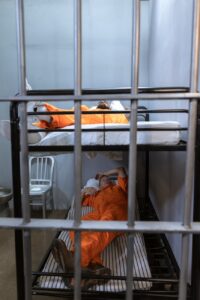Raising the funds for the 6000 watts of awesomeness
Snow College, Weber State University, Utah State University, and Dixie State College have one. Will the College of Eastern Utah be next?
CEU has the Federal Communications Commission’s approval to construct a 6000 watt communications tower.
Currently CEU has a 0.25 watt system, according to Johnathan Ariola. The system in place “doesn’t even go through an inch of glass.
“The 6000 watt system would allow the station to broadcast over most of Carbon County and even parts of Emery County,” said Troy Hunt, communications department chair and advisor to the radio program.
This archived article was written by: Ryan Ware
Snow College, Weber State University, Utah State University, and Dixie State College have one. Will the College of Eastern Utah be next?
CEU has the Federal Communications Commission’s approval to construct a 6000 watt communications tower.
Currently CEU has a 0.25 watt system, according to Johnathan Ariola. The system in place “doesn’t even go through an inch of glass.
“The 6000 watt system would allow the station to broadcast over most of Carbon County and even parts of Emery County,” said Troy Hunt, communications department chair and advisor to the radio program.
The equipment to get the college up to the 6000 watt standard will cost $100,000. So far they have raised $65,000. With $35,000 remaining to raise, Hunt is trying to find ways to fund the remainder.
Funds have been raised through underwriting and community donations.
“The new system needs to be finished and tested by Feb. 13, 2011,” said Troy. If the system is not completed by then, Hunt and radio students will never be able to use a 6000 watt system. This is because the FCC would revoke all rights to the airspace they have been assigned indefinitely.
This problem is a “chicken and egg case … To get underwriting many businesses want to be able to hear us. To be able to get heard, we need the money to buy the equipment,” said Hunt.
Because the station is a non-profit educational broadcast station, Hunt cannot have advertisements run on the station. He can do underwriting, which is where businesses donate money to the college. On occasion, he broadcasts the list of sponsors, what their type of business is and thanks them for their support.
It is a tax write off for businesses and costs less than most other forms of advertising according to Hunt.
The college has had as much as five or six underwritings at one time. Currently there are none. Cost for underwriting for a local business is around $1000 for a year.
In addition to underwriting, other types of fundraising are done. Events like Battle of the Bands are essential to raising money for the radio station.
Hunt has also asked President King for a loan from the college. For a loan to be issued, it needs to be approved by the board of trustees. Hunt says support is shown but financial backing has yet to be seen.
Any student can attend a radio production class. The course label is comm 1560. It fills an oral intensive credit for graduation from CEU. The comm. 2560 is for students who have already completed the comm 1560 class.




